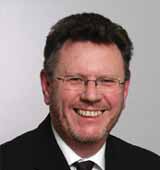|
Executive Interviews: Interview with George Wright on Decision Making
May 2008
-
By Dr. Nagendra V Chowdary
 George Wright
George Wright Professor of Management at Durham Business School, UK. 
You have undertaken a wide range
of consultancy and workshop-based
assignments in scenario thinking and
decision analysis for a variety of
public and private sector
organizations in the EU and beyond,
including clients like HBoS,
Petronas, the Jordan Ministry of
Planning, the Scottish Football
Association, etc. You have also
recently authored three books two
on decision-making and one on
scenario planning. In all these years
of teaching, consulting, and
authoring experiences, what have
been your major propositions on
decision making? Have they changed
over the years?
I used to believe that management
science techniques like decision
analysis could aid decision-making to
become more rational but, with
experience, I now feel that
irrationality and flawed decisionmaking
are commonplace. The fact is
that poor decisions, once made, get
made to work such that the initially
poor decision is no longer obvious to
observers! I think that top
management teams can be trapped by
pitfalls in their decision-making.
Decisions, once made, are seldom
reversed even when the stream of
incoming information shows an
initial decision to be wrong-headed.
Biases like overconfidence and search
for evidence that confirms the validity
of the earlier decision are
commonplace, in my experience.
Also teams of managers tend, over
time, to become cohesive and feel
invulnerable in their decisionmaking.
Additionally, poor decisions
tend to be rescued by the
commitment of additional resources
to turn a poor decision outcome
around just look at the major
computer projects that go wrong
good money often follows bad!
-
One of the books you wrote was,
Strategic Decision Making: A Best Practice Blueprint. When does
decision-making become strategic?
What parameters define the quality of
a decision?
Any decision that is not easily
reversed is strategic. Also keeping
major options open so called realoptions
thinking are often strategic.
I guess that, in the end, all big
decisions are strategic! A good quality
decision may result, by chance, in a
poor outcome. Good decisions are
evidenced by a good decision process
that involves information search,
the weighing of uncertainties and
values, and the exercise of good
judgment. And there are decision
aiding tools around that can help
both individual managers and top
teams make great decisions based on
judgment. These techniques
challenge judgments and decisions
that are formed early in the
consideration of a decision. Often,
decisions are both challenged and
changed by these decision aiding
techniques. Changed intuition is a
measure of a high-quality decision
process. -
What, according to you, are the
similarities and dissimilarities
between an individual, managerial,
executive, societal and governmental
decisions?
I think that all decisions whether
personal or institutional can be
analyzed in the same way. Even
family decisions involve different
stakeholders spouse, children
and have both financial and nonfinancial
consequences. Institutional
decisions are similar but perhaps the
political processes in institutional
decisions are more complex but,
there again, maybe not! -
Are there any tools/mathematical
models/decision trees, etc., that the
students are taught?
There aremany tools that I and others
teach to MBA students and use in
consulting assignments. Some tools
are mathematical but all use, to some
degree, human judgment. Even the
forecasts of econometric models are
routinely subject to human
adjustments to take into account
variables that will have an impact of
the target forecast variable but which
the forecaster knows are not part of
the econometricmodel. There are also
behavioral tools that structure the
interaction of top teams such that
ideas can be challenged without some
individuals losing face by being
challenged. Scenario planning is a
well used method to challenge
business as usual thinking. It does
this by helping top teams construct
alternative but yet plausible
scenarios of the future in which the
organization must survive or better
still thrive! -
Is decision-making a science or an
art? If it is to believed as science, can
its principles be applied universally?
If it is an art, how can someone be
trained to be an effective decisionmaker?
In my view it is a mixture of art and
science. The science comes for the
availability of normative tools like
decision analysis that can specify
soundly-based decisions. But the
input for the analysis subjective
probabilities and payoffs come from
the heads of the managers and these
inputs can only be judgmental. As I
said before, the best decision aiding
techniques both challenge and
change intuition. -
To trust employees and to allow
them to make decisions, particularly
without all the pieces to the puzzle is
anathema in business today. What is
the appropriateness of participatory
decision-making and unilateral
decision-making? In what kind of
industries/circumstances, do you think each of these approaches serve
a better purpose?
To me, the major resource of the
corporation is the intelligence held in
the minds of the managers and
workforce. The key is to tap this,
often untapped, resource. Contained
within this resource is the major
competitive advantage of the
corporation. But often individuals do
not listen to one another people
defer to the most dominant figure in
the hierarchy. But good judgment
does not necessarily reside at the top
of the organization especially if the
leader has been leader for some years.
As the business environment
changes, the thoughts of the old
leadermay not and few will tell him
or her so! It follows that true leaders
should relish challenge to their
judgment and decisions. This is
especially true when you consider
that of the Fortune Global 500
organizations only 50% last longer
than 50 years. Interestingly, the
Universities are one of the longest
lasting of institutions and
Universities are all about challenge
and debate!
|
